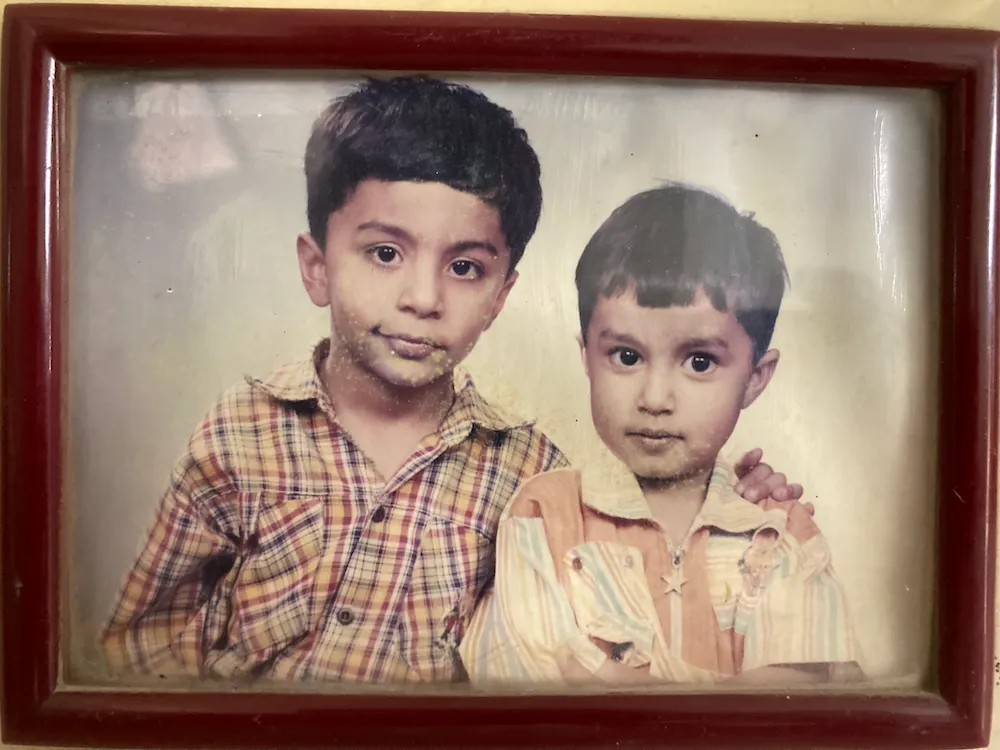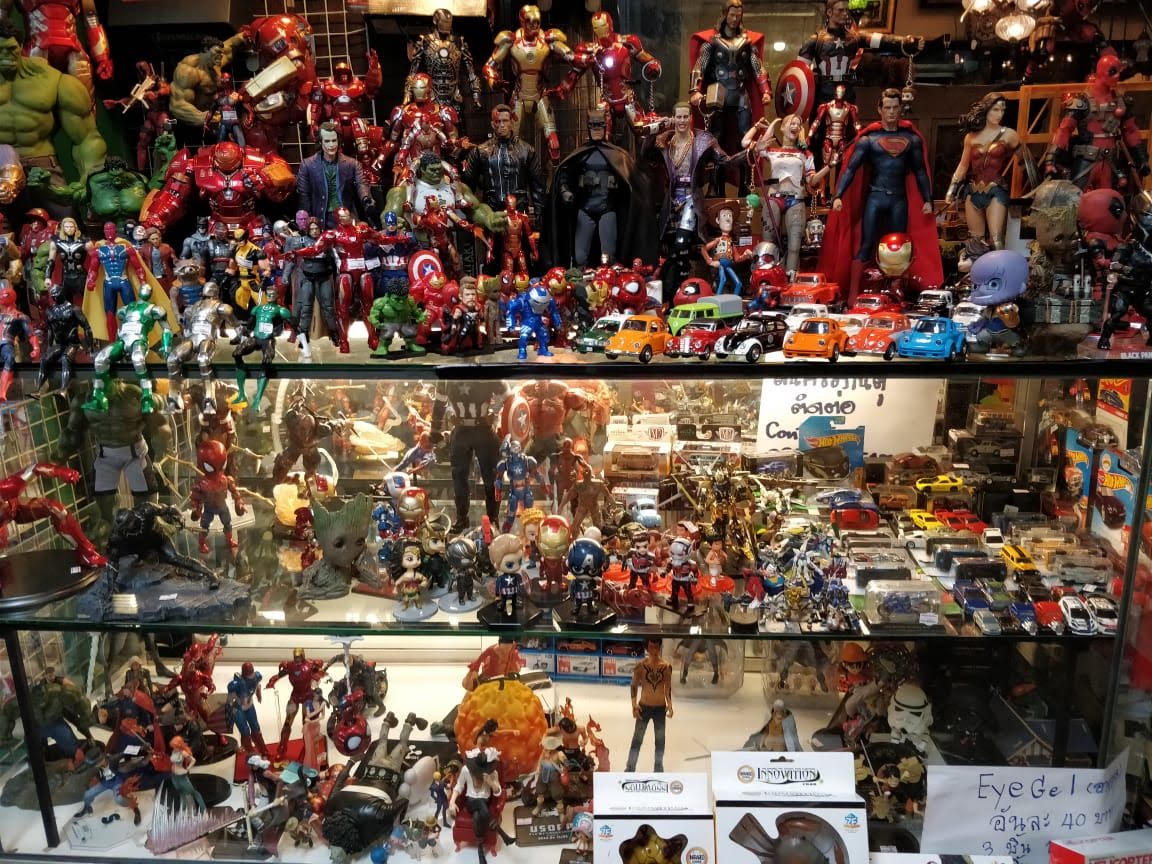Growing Up With a Pansexual Brother

My younger brother and me, framed sometime around 2001.
In 2022, on Pride Day, my (29) younger brother (27), identified himself as pansexual and gender-fluid. Coming from South Asia, specifically India, LGBTQ+ individuals were (and, to some extent, still are) looked down upon in society, suppressed, and considered taboo. Fortunately, my parents and grandparents embraced his coming-out story as gracefully as I did, despite the sudden shock, trauma, and turmoil they went through.
It has been two years, and during this time, I have been solo-traveling. I’ve always been an escapist, especially from my family and their conflicts since childhood. It’s no surprise that I’m deemed as the guy who’s adrift from his family, akin to Connor (from Succession).
Note to the reader: I’m just halfway through Succession Season 4, so no spoilers!
Only recently have I come to terms with my deep-rooted childhood trauma, understanding why I had such an estranged relationship with my brother, father, and mother (in that particular order), and why I have been mostly an emotionally inexpressive human (or too expressive at times) and became a workaholic since my early teens.
To travel back in time to my pre-teen and kindergarten days (the memories are hazy), my younger brother and I have always had disagreements on most fronts (except on our family dynamics). Yes, sibling rivalry is all too common, especially in dysfunctional families (even more so for those based in India and adjacent nations — which still suffer from the generational trauma of British Colonial rule, the Indo-Pak partition, wars, etc). However, as far as I can recall, my brother and I have had a complex dynamic since we were 3 and 5, respectively. I was the boy who’d build a G.I. Joes army, and he’d bring a Barbie doll. Or a Powerpuff action figure.
This often led to my winning, not just because 7-year-old me ridiculed my brother for setting up dollhouses and forced him not to play with Barbies (a memory I find embarrassing to recall), but also because the 100 set pieces of G.I. Joe action figures I had arranged would inevitably outnumber the handful of Barbie dolls he possessed.

A recent click from a toy store. Check the gender ratio! Sardonically, it’s just a reflection of the society we live in. There’s still a long way to go.
Hmm… so almost every G.I. Joe vs. Barbie duel ended with my brother in tears. I would try to “fix him,” toughen him to behave like a boy, but this only fueled our sibling rivalries, leading to my parents intervening to calm things down and scolding me. Many times, the scolding involved a whack from Dad (that’s how Indian parents kept kids in line in the ‘90s), and in response, I would get mad and fight back against him and brother as a retaliation. Rinse and repeat this cycle for years, and it evolved into regular WWE-like fights that tested my parents’ temper. I faced the fury each time (except once, lol).
Around the age of 12, it started impacting my emotional well-being, and I suspect, the entire family’s too. I struggled to control my emotions because I didn’t know how to handle the conflicts or how to treat my younger brother, and constantly got cornered. That’s when my grandfather stepped in, took me into his wings, and started creating some distance while my dad focused on my younger brother (today I guess they were probably playing good cop, bad cop). Things like clear boundaries were set to minimize sibling interactions — something I can now jokingly refer to as practicing social distancing and quarantine, well before the days of COVID.
Although the fights and tensions fizzled away, and we became engrossed in our studies and careers eventually, the rift with my dad, brother, and, unfortunately, my mother too (perhaps, she got caught in the divide). Despite sharing the same house, I gradually became reclusive within my family, hardly talking about stuff outside chores, and was turned into a workaholic and emotionally unavailable family member.
Now, looking back, when my brother shared his coming-out story and the struggles, including bullying he faced in schools for not being straight, I felt sad and powerless for not being there for him.
However, I was still all too consumed in the memories of my past lives (pun intended), and had that deep resentment with my family that made it hard to fully express, be emotionally available to them or handle tense environments at home.
And then there was that guilt too.
The guilt of treating and teasing my younger brother like a “guy” and trying to suppress his feminine traits instead of letting him (they) be the way they want to.
After lots of traveling (which, unsurprisingly, isn’t a cure for the mind but does provide fresh perspectives) and a few therapy sessions later, I have reached a point of acceptance regarding my long-buried childhood memories. Of course, the complex family dynamics weren’t solely due to my brother’s gender-fluid personality or the parents’ way of dealing with me. However, it is a part that did play a role in how I (and my family) grew up alongside my pansexual brother.
Dwelling on it too much will not alter the course or bring back the lost time. Holding onto resentments towards my family or beating myself up for how I treated my younger brother during our formative years will also not change anything.
Instead, I’m learning to embrace the need to let go of regrets and acknowledge the uniqueness of our family circumstances (like every family), as well as the limitations of our understanding at the time. Perhaps it is these very imperfections that give meaning to life and family.
“Life can only be understood backwards, but it must be lived forwards.” ~Søren Kierkegaard